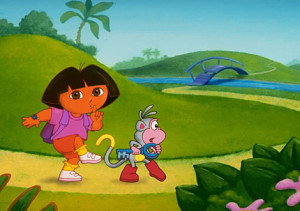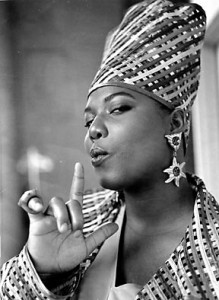 When I first met Queen Latifah, I called her “ma’am” and got a lecture.
When I first met Queen Latifah, I called her “ma’am” and got a lecture.
“Who you calling ma’am? My mother is not around.”
I was mortified. I was a newbie entertainment journalist who scored the dream of talking to one of my heroes. It was in 1999 when Latifah launched her (short-lived) eponymous talk show. I couldn’t figure out what to call her and show both respect and knowledge of her influential career. Do I call her Dana? Ms. Owens? Latifah? The Queen? (For the record, it’s “Latifah.”) I got nervous and fumbled, but quickly redeemed myself by gushing about how I grew up with her TV show, “Living Single,” and most of all was changed by her music. She told me, “You’re all right,” which I so wish she had written on a napkin so I could have framed it and looked to it in moments of self-doubt over all these years.
Listening to her music offers an equal ego boost.
Today she’s a Cover Girl and an Oscar-nominated actress, but when the world first met Queen Latifah, she was nothing short of a feminist revolutionary. Her debut album, “All Hail The Queen,” tackled topics such as black-on-black crime, socialized poverty and pretty much every pertinent feminist issue–from rape to domestic patriarchy–in the iconic single, “Ladies First.” Her flow–on par with LL Cool J and Chuck D–was as penetrating as her message: Look at me, respect me, listen to me–and bow down. The album sold more than 1 million copies. She was 19.
There were plenty of female pop icons in 1989, but none exhibited the confidence that Latifah oozed. I remember watching her videos, admiring her regal, African clothing and flawless skin and thinking: She is such a badass! I wanted to be Madonna, but I wanted to listen to what Latifah had to say–which was a lot.
Social issues dominated her lyrics, and feminist anthems were a natural. After “Ladies First” came “U.N.I.T.Y.”, which takes on sexism in music lyrics (often those of her peers), sexual harassment, domestic violence, and female misogyny:
I bring wrath to those who disrespect me like a dame/That’s why I’m talking, one day I was walking down the block/ I had my cutoff shorts on right cause it was crazy hot/I walked past these dudes when they passed me/One of ‘em felt my booty, he was nasty/I turned around red, somebody was catching the wrath/Then the little one said (Yeah me bitch) and laughed/Since he was with his boys he tried to break fly/ Huh, I punched him dead in his eye and said “Who you calling a bitch?”
Latifah could compete with the boys of hip-hop but she never pretended to be anything but a woman. She not only sang about female empowerment, but she wrote about being a woman–from the insecurities we sometimes feel to the nirvana of being in love. Sensuality and femininity were always as important to her as strength.
Captivate my soul, hold me/When I’m down I need your love to console me/ Some weakness tells me when the morning comes/ It’s hard for me to try to see you’re not the one/ For the love of you I just might just do most anything – “Give Me Your Love”
Latifah lives her feminism as well. Just two years after her debut album, she became the chief executive of Flavor Unit, which put her in the position to foster young, female musical talent. She built a brand on her image, which was one she never apologized for, despite the fact that she in no way fit the typical celebrity mold. She modeled because it was always a dream of hers. She made jazz records because she always loved the music. She has always been undeniably herself, which is the thing I admire most about her still to this day.
Latifah actually means “delicate and sensitive” in Arabic. But make no mistake, The Queen is all powerful.
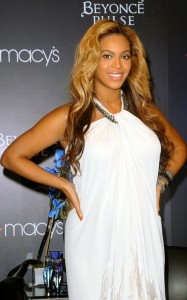 The media likes to ask female pop stars about feminism. A lot. In fact, for some reason, young female singers are bombarded with this question so much that it has become its own news category. When someone like Taylor Swift or Beyonce answers the question, “Are you a feminist?”, the Internet blows up with critique. There never seems to be a right answer.
The media likes to ask female pop stars about feminism. A lot. In fact, for some reason, young female singers are bombarded with this question so much that it has become its own news category. When someone like Taylor Swift or Beyonce answers the question, “Are you a feminist?”, the Internet blows up with critique. There never seems to be a right answer. In the past several months, Beyonce, Lena Dunham, and Rihanna have taken intense heat for the following ills of society:
In the past several months, Beyonce, Lena Dunham, and Rihanna have taken intense heat for the following ills of society: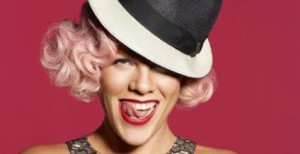 In one of her earliest songs, “Don’t Let Me Get Me,” P!nk sang, “I’m tired of being compared to damn Britney Spears/She’s so pretty, that just ain’t me.” We’ll respectfully submit that Ms. Alecia Moore has her own share of attractive physical qualities, and also assure her: Don’t worry, no one’s about to mix you and Ms. Spears up anytime again soon.
In one of her earliest songs, “Don’t Let Me Get Me,” P!nk sang, “I’m tired of being compared to damn Britney Spears/She’s so pretty, that just ain’t me.” We’ll respectfully submit that Ms. Alecia Moore has her own share of attractive physical qualities, and also assure her: Don’t worry, no one’s about to mix you and Ms. Spears up anytime again soon.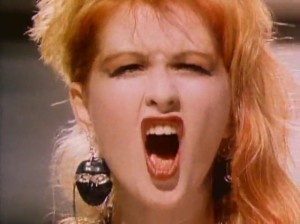 Cyndi Lauper launched her music career like many wannabes don’t: singing in cover bands. She spent most of the seventies wailing renditions of Led Zeppelin, Bad Company and Jefferson Airplane songs before she was discovered, signed and added to a pop group. Blue Angel had one album.
Cyndi Lauper launched her music career like many wannabes don’t: singing in cover bands. She spent most of the seventies wailing renditions of Led Zeppelin, Bad Company and Jefferson Airplane songs before she was discovered, signed and added to a pop group. Blue Angel had one album.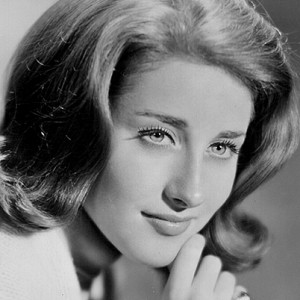 At just 17, Lesley Gore was a fairly typical girl singer for the ’60s, with coiffed hair and tasteful ’50s/early ’60s dresses and her sweet mega-hit “It’s My Party.” But her 1964 smash “You Don’t Own Me” was shockingly progressive for its time. Hell, its lyrics still sound relevant today. (Alas.)
At just 17, Lesley Gore was a fairly typical girl singer for the ’60s, with coiffed hair and tasteful ’50s/early ’60s dresses and her sweet mega-hit “It’s My Party.” But her 1964 smash “You Don’t Own Me” was shockingly progressive for its time. Hell, its lyrics still sound relevant today. (Alas.)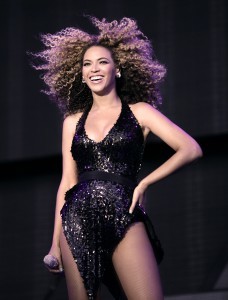 Beyonce is a great songwriter, seemingly able to spin out a girl-power anthem on demand: “Single Ladies,” “Survivor,” “Independent Women,” “Run the World (Girls),” “Bootylicious.” She has appeared to struggle more with her sensitive side in songwriting, despite her protestations that she’s
Beyonce is a great songwriter, seemingly able to spin out a girl-power anthem on demand: “Single Ladies,” “Survivor,” “Independent Women,” “Run the World (Girls),” “Bootylicious.” She has appeared to struggle more with her sensitive side in songwriting, despite her protestations that she’s 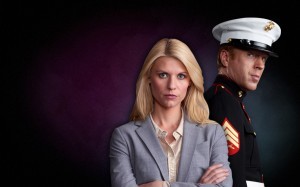 Homeland: This homeland-security drama is poised for a breakout season on the Downton Abbey level. It stars Claire Danes as, essentially, Kiefer Sutherland in 24. Yep, that’s pretty much all you need to know.
Homeland: This homeland-security drama is poised for a breakout season on the Downton Abbey level. It stars Claire Danes as, essentially, Kiefer Sutherland in 24. Yep, that’s pretty much all you need to know. Feminist!
Feminist!